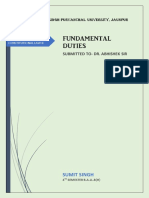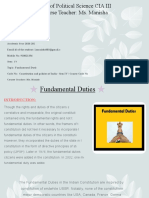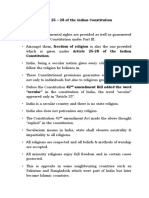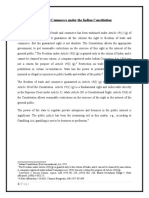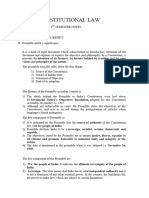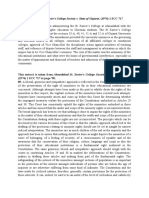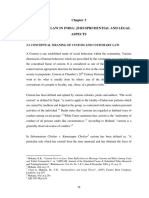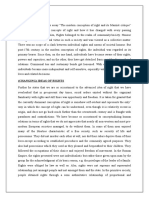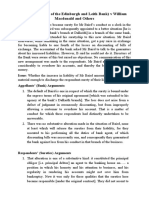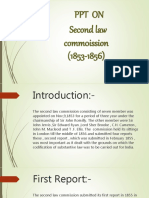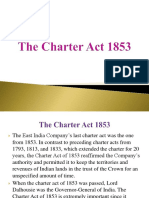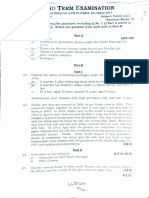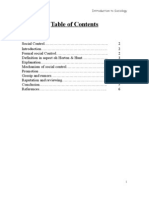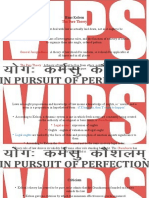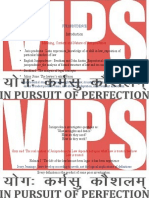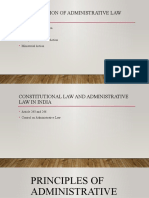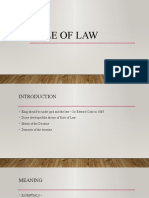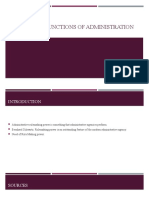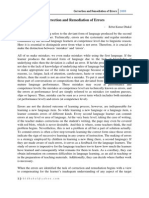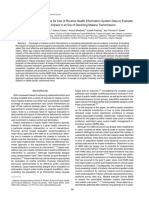0% found this document useful (0 votes)
884 views6 pagesFundamental Duties
The document discusses the fundamental duties of citizens in India as outlined in Part IV-A of the Indian Constitution. It was added in 1976 to establish certain basic norms and values that citizens should uphold, including abiding by the constitution, promoting national unity and integrity, protecting the environment, and developing scientific temper. While not judicially enforceable like fundamental rights, courts can refer to these duties to help interpret other constitutional provisions. The document outlines how various laws have been enacted to help uphold certain duties, and examples of Supreme Court cases that have reinforced the importance of fundamental duties in India.
Uploaded by
AnonymousCopyright
© © All Rights Reserved
We take content rights seriously. If you suspect this is your content, claim it here.
Available Formats
Download as PDF, TXT or read online on Scribd
0% found this document useful (0 votes)
884 views6 pagesFundamental Duties
The document discusses the fundamental duties of citizens in India as outlined in Part IV-A of the Indian Constitution. It was added in 1976 to establish certain basic norms and values that citizens should uphold, including abiding by the constitution, promoting national unity and integrity, protecting the environment, and developing scientific temper. While not judicially enforceable like fundamental rights, courts can refer to these duties to help interpret other constitutional provisions. The document outlines how various laws have been enacted to help uphold certain duties, and examples of Supreme Court cases that have reinforced the importance of fundamental duties in India.
Uploaded by
AnonymousCopyright
© © All Rights Reserved
We take content rights seriously. If you suspect this is your content, claim it here.
Available Formats
Download as PDF, TXT or read online on Scribd
/ 6
